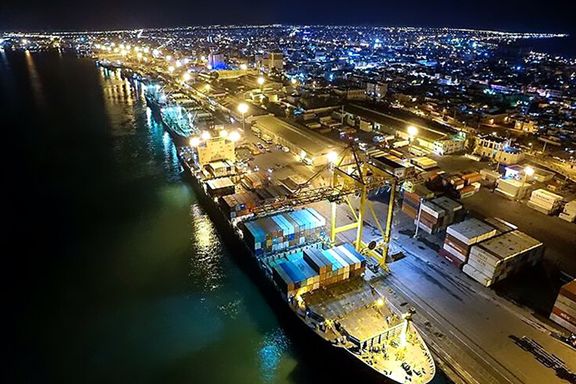Iran Keeps Port Traffic Confidential Amid Global Sanctions

As Iran continues to work to evade global sanctions, one of the country's leading figures has admitted the regime is deliberately concealing its maritime activities to avoid scrutiny.

As Iran continues to work to evade global sanctions, one of the country's leading figures has admitted the regime is deliberately concealing its maritime activities to avoid scrutiny.
Jalil Eslami, Deputy Head of Iran's Ports and Maritime Organization (IPMO), emphasized the need for discretion regarding the ports where Iran faces traffic restrictions, saying, "Considering the current conditions, Iranian ships face restrictions on traffic in some ports, but it is not a good move to announce the names of those ports."
Eslami's statement follows the recent ban on Iranian ships at India's Mundra port due to sanctions measures and in the wake of earlier disclosures by Iranian transportation officials regarding maritime challenges globally.
While India has historically maintained friendly relations with Iran and has been a significant trading partner, it has also adhered to international sanctions regimes, particularly those imposed by the United Nations. The recent ban will have major economic consequences.
Masoud Daneshmand, a member of the board of directors at the Center of Transport Institutions, echoed the government's concerns, emphasizing the significant impact of sanctions on Iranian shipping assets.
In March, the United States imposed new sanctions targeting entities associated with Iran's shipping and petrochemical sectors, aligning with previous measures aimed at Iran's oil, banking, and transportation industries. Additionally, a cautionary advisory issued by the Office of Foreign Assets Control in 2019 warned global entities involved in shipping petroleum from Iran about potential repercussions.